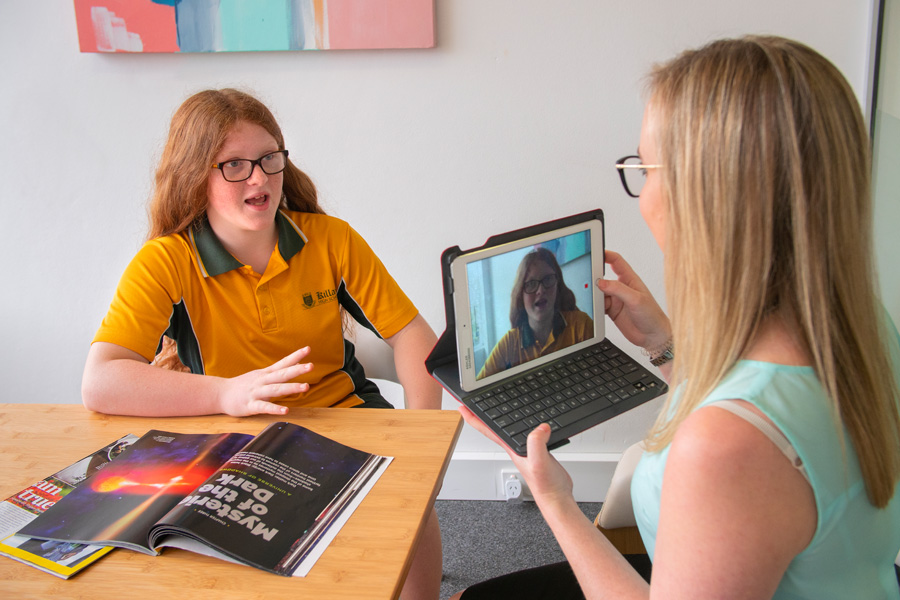How speech pathology can assist social skills development

“Children who have difficulty with social communication skills often have difficulty making conversation with others”
What does a difficulty with social skills look like?
“Identification and development of social communication skills are vital to support a child’s social and emotional well being”
When to seek help
Emerging evidence suggests that social communication difficulties in the primary school years. May be related to emotional and behavioural difficulties in later life[5]. With this in mind, please talk to our speech pathology team if your child has difficulties in two or more of these areas:
- Initiating play with other children
- Taking turns in play
- Taking turns in conversation
- Provides too much or too little information
- Changes topic frequently
- Does not respond appropriately to questions
- Negotiating with peers
- Identifying emotions (on faces or intonation)
- Understanding the ‘hidden rules’ in everyday life
“People with social skills difficulties are encouraged to develop their ability to think, monitor and adjust their thinking and understanding of communication[6] by using a range of tools”
How Talkshop Speech Pathology can help with social skills
Assessment
Therapy
Social Skills Programs
Adolescents
-
Ordering food
-
Meeting for dinner
-
Being an active member of a social group
-
Solving problems with friends
-
Managing conflict
-
Requesting assistance and help
-
Dating
-
Purchasing tickets
-
Talking to the driving instructor
Social Skills Groups
Introduction and responsiveness
This focuses on the ability to introduce and respond to communication from another person. This means being able to engage in a conversation, take turns, or start a conversation.
Non-verbal communication
To illustrate the use and understanding of gestures, facial expressions, body postures, body language, and proximity. For example, understanding that a person who is tapping their foot is likely feeling impatient. Or, not standing too close to a stranger when you are speaking with them.
Social-emotional attunement
That is being able to interpret the emotional reactions of others. For example, interpreting that an expressionless face may indicate boredom. That rolling eyes may indicate exasperation or derision. Or that crying is most likely to mean sadness.
Executive function
This supports the ability to attend to interactions and be flexible in how they respond and in what is said. In this case, it supports the skills of responding rather than reacting. This means being able to change topics and adjust to questions. Or to emphasise giving more information if a person doesn’t understand.
Negotiation
In particular, this focuses on the ability to cooperate and negotiate appropriately in games, activities, and everyday life.
“We encourage our older clients and adults to step into our local community and apply their developing skills in a real-life situation.”
References
1 Bishop, D, V, M. (2000) Pragmatic language impairment: a correlate of SLI, a distinct subgroup, or part of the autistic continuum? In D.V.M Bishop and L. B. Leonards (eds), Speech and language impairments in children: Causes, Characteristics, Interventions, and Outcomes. Hovw: Psychology Press, pp. 99-113 https://www.researchgate.net/publication/215626834-Pragmatic-language-impairment-a-correlate-of-SLI-a-distinct-subgroup-or-part-of-the-autistic-continuum. Accessed 11 Jan. 2019.
2 Gates, J. A., Kang, E., & Lerner, M. D. (2017) Efficacy of group social skills interventions for youth with autism spectrum disorder: A systematic review and meta-analysis. Clinical Psychology Review. Vol 52, March 2017. P 164-181. https://www.ncbi.nlm.nih.gov/pmc/articles/PMC5358101/. Accessed 11 Jan. 2019.
3 Badiel, D. C., Alfano, C. A., Kofler, M. J., & Rao, P. A. (2014) The Impact of Social Skills Training For Social Anxiety Disorder: A Randomised Controlled Trial. Journal of Anxiety Disorders. Vol 28, Issue 8, Dec 2014. P 908-918. https://www.ncbi.nlm.nih.gov/pmc/articles/PMC4254620/. Accessed 14 Jan. 2019.
4 Angelico, A. P., Crippa, J. A. S., Loureiro, S. R. (2013) Social Anxiety Disorder and Social Skills: A Critical Review of the Literature. International Journal of Behavioural Consultation and Therapy. Vol 7. No4. http://psycnet.apa.org/journals/bct/7/4/16.pdf. Accessed 14 Jan. 2019.
5 Adams, C., Lockton, E., Freed, J., Gaile, J., Earl, G., McBean, K., Nash, M., Green, J., Vail, A., & Law, J. (2012) The Social Communication Intervention Project: a randomized control trial of the effectiveness of speech and language therapy for school-aged children who have pragmatic and social communication problems with or without autism spectrum disorder. International Journal of Language and Communication Disorders. 47(3) 233-244. https://www.ncbi.nlm.nih.gov/pubmed/22512510. Accessed 11 Jan. 2019.
6 Gaile, J. & Adams, C. (2018) Metacognition in speech and language therapy for children with social (pragmatic) communication disorders: implications for a theory of therapy. International Journal of Language and Communication Disorders. 53 (1) 55-69 https://www.ncbi.nlm.nih.gov/pubmed/28621083. Accessed 11 Jan. 2019.
7 Parsons, P., Cordier, R., Munro, N., Joosten, A. & Speyer, R. (2017) A systematic review of pragmatic language interventions for children with an autism spectrum disorder. PLoS One 12 (4): e0172242 https://journals.plos.org/plosone/article?id=10.1371/journal.pone.0172242. Accessed 11 Jan. 2019.
8 Parsons, S., Leonard, A., & Mitchell, P. (2006). Virtual environments for social skills training: Comments from two adolescents with autistic spectrum disorder. Computers & Education, 47(2), 186-206.http://psycnet.apa.org/record/2007-02730-004. Accessed 11 Jan. 2019.
Additional resources
https://www.asha.org/public/speech/development/social-communication/
http://www.hanen.org/helpful-info/articles/a-closer-look-at-social-communication-difficulties.aspx
